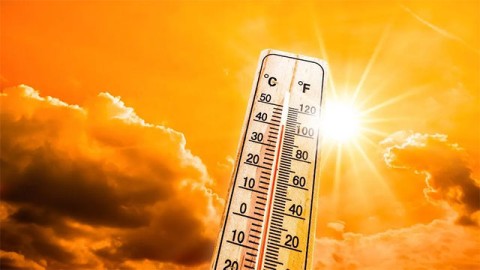The World Meteorological Organization (WMO) recently said that global temperatures will ease somewhat after months of record-breaking "heat waves" due to the weakening of the El Nino phenomenon , combined with the return of the La Nina weather pattern .
With many countries experiencing severe heat like Pakistan with temperatures always between 48 - 50 degrees Celsius, India is experiencing temperatures of 52.9 degrees Celsius, this is considered good news.

Every time an El Nino occurs, the Earth sees new temperature records. 2023 was the hottest year on record globally.
In many places, especially in the tropics, El Nino warms the ocean surface, leading to drought in some parts of the world and heavy rain in others. La Nina cools the ocean surface, along with changes in wind, rain, and atmospheric pressure, resulting in an improvement in average temperatures compared to when El Nino occurs.
WMO said the possibility of La Nina occurring in July-September is 60% and in August-November is 70%.
However, the WMO also warned that due to the impact of climate change, global temperatures will continue to rise over the long term, extreme weather will become worse, and even disrupt seasonal patterns of temperature and rainfall.

Ko Barrett, Deputy Secretary-General of the WMO, stressed that our planet will continue to warm due to heat-trapping greenhouse gases, so the end of El Nino does not mean a long-term pause in climate change.
Another challenge is that sea surface temperatures are exceptionally high, as much of the planet’s excess heat from climate change is stored in the oceans. This sets the stage for major Atlantic hurricanes, which occur from around June through November.
The past nine years have been the period when Earth set a record for the warmest temperatures in history, peaking in December 2023, according to WMO.
In a recent study, scientists warned that the world could fall into a dangerous situation because humans have not properly addressed the effects of climate change.
Scientists predict that about 1/3-1/2 of the world's population (equivalent to 3-6 billion people) could suffer from extreme heat and food shortages.

















